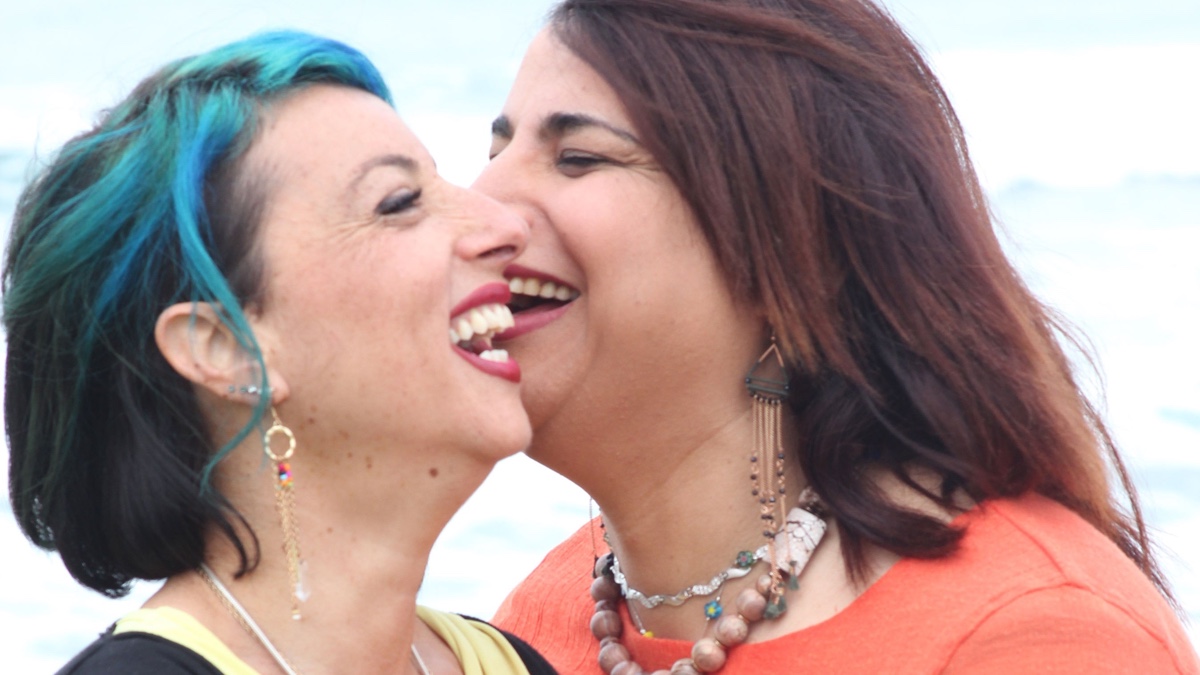
22/08/2019
An unusual story about revealing an unusual reality
“I want to show that being transgender is reality” Ofir Trainin said, explaining the reasons for filming ‘Family in transition’, the documentary that will be screened at this year’s Mediterranean Film Festival. This is a story about a family in a small traditional Israeli town, whose lives completely change after their father finally announces that he is a transgender woman. Their mother decides to stay with her husband through the entire process, but in the end she makes a sharp turn and shakes everyone with her decision. The film received good reviews in Israel, and Ofir pointed that it is important for the entire society, not only Israel and LGBTIQ community.
How did you find out about this family and the story about change of sex and how did they react on your idea of documenting the entire story?
The story started 20 years ago when I was about 20 years old. My older brother left me a note in my room stating that he is gay. It is important to know that me and my family are from a kibbutz in the south of Israel. A kibbutz is like a small village with its own rules coming from a prior socialist mentality and set up. My brother was one of the first kibbutz inhabitants that came out of the closet. It was a pretty big deal at that time. 20 years passed, and I became a documentary filmmaker that came across the Tehila organization, which is an LGBT organization focused on helping parents who children who are come out of the closet. This organization asked me to make a few short movies about this subject. While I was working on those movies, the manager of Tehila told about me about a story of a family from Nahariyia and told me about the story of Galit and Amit. When I heard the story, I understood that it would not be a 15 min movies but rather a proper documentary, especially because they were at the beginning of their process (Amit had come out only for about 6 months before I met them). Then I met Amit and Galit face to face and I explained to them that their story is so special that it could be a good documentary that depicts their story and how they process all the changes. It is rare that the wife of a transgender woman decides to stay and support her husband through this process. They agreed to do it.
Israel is considered a very conservative country, but still the position of LGBTIQ people is better than in any other country, at least when talking about the countries in your region. According to some estimation you have high percentage of support to same-sex marriages, over 60 percent. How did the documentaries like this one influence that?
There are not a lot of documentaries that tell the story of a transgender from the point of view of the wife and of the children first. It really touched me personally and reminded me how my parents and my sister dealt with my brother gay coming out. It is an important film above all because of the right wing government and the surrogacy law that they enacted a few months ago that, among other things, does not allow gays to use surrogacy as a way to become parents. The atmosphere in Israel took a turn to be less tolerant, more religious, and less conservative than before. The norm is changing but very slowly and most of the people still do not accept it in those communities. I hope that the situation in Israel in those communities will change and that the movie can help making that happen.
How are transgender considered in Israel?
Relating to your last question, I think Israel is actually made of two countries within the country: You have Tel Aviv and the surrounding areas where transgender can fell equal and not discriminated against, they feel accepted and most of the time can feel their life like everybody else. In the other Israel which is the most of Israel, Nahariya, the city where the movie is located being part of it, there are much more religious and conservative cities that are not tolerant and in those cities, it is extremely challenging and difficult for them to live there. In the case of Galit and Amit, they are in some sort pioneers that show to other transgender couples that if you are strong, there is the possibility for you to live your life outside of Tel Aviv also.
How did the Israeli audience and the Israeli professional filmmakers react to the documentary?
The film looks like it is very successful in Israel: both the audience and the Israeli cinema community had very positive feedback. They both say that the movie is very strong and has deep meaning especially nowadays in the Israeli society. I hope that the movie can break the stereotypes and show the Israeli people who do not know about transgender and have prejudices about them that there is nothing to be afraid of. I want to show them that transgender is a reality. The movie is for the whole society, it is for everybody not only for the LGBT community to watch. It is about relationships, parenting, accepting, tolerating and not putting people into boxes. It does not matter if they are LGBT, Arab, Jewish, handicapped, sick, black or white. We are all human beings and need to work towards accepting and understand one another regardless of how we look but regarding whom we are and the values we convey.
A big part of the story is children. Interesting part is when the son says that it was harder to deal with the divorce than transgender transformation. At what point did you realise that it is not only about the gender change but a family story?
In my option, one of the strongest sentences in the movie was when Yarden told his mother that the divorce was harder for him to handle than his father transgender transformation. When the family fell apart, it was the most difficult situation for the children. Now they are better, things settled in, they are more mature about it. The click happened when the children started to take part in the process and share their emotions. As it is said, the film is about a family and the road they find in the family in a new form.
Where are Galit and Amit today: are they still in relationship?
Amit and Galit continued their lives with new partners, as we can see in the film. They are still in Nahariya and share custody of their children. The movie was not screened in Nahariya yet, the organizations of the city are not there yet … and Galit and Amit might not be there yet either … it needs time.


